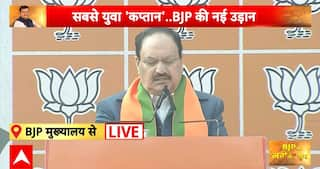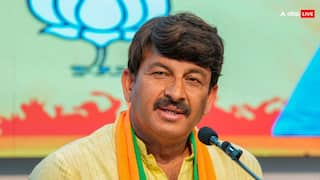Energy-Independent India — Why It Is Time To Take Electric Vehicle Technology More Seriously
EVs and energy independence have the potential to propel India into the orbit of a developed nation when viewed from the perspective of a Net-Zero economy.

On August 15, India commemorated 75 years of independence — a journey which saw the nation cross many milestones, celebrating several achievements and weaving greater ambitions. In a sense, the celebrations marked 75 years of India aspiring to become a developed nation. The white and green revolutions, the establishment of Navaratna businesses, the liberalisation of India’s private sector, its ambitious space programme, and more, are all great examples. Sounds gung-ho, doesn’t it?
Why should India take electric vehicle (EV) tech seriously?
Let’s view these 75 years a bit differently. The Indian population has increased from 340 million in 1947 to over 1.4 billion today. While the nation’s energy consumption per capita grew from 16kWh in 1947 to 1,208kWh in 2019-20. Today, India is the third largest emitter of carbon dioxide in the world, despite its per capita energy consumption being less than half the worldwide average. Today, over 80 percent of India’s energy needs are met by coal, oil, and solid biomass, with coal accounting for over three-quarters of India’s power generation.
India, the world’s 2nd largest producer and consumer of coal, imported over 196.704 metric ton of thermal coal in 2019-20. In 2020-21, Indonesia accounted for 55.56 percent (91.137 metric ton), South Africa for 18.95 percent (31.093 metric ton), and Australia for 10.98 percent (18.008 metric ton) of India’s thermal coal imports. Despite an estimated decline to 170 metric ton by 2030, such huge dependence on imports for thermal coal undoubtedly compromises the nation’s energy security.
Next, let’s look at oil. India, the world’s third largest consumer and importer (85 percent of the demand is for crude) of oil in the world, spent $119.2 billion on oil imports in 2021-22 (April 2021 to March 2022), up from $ 62.2 billion in the previous fiscal year.
The above-mentioned facts and figures are enough to put into perspective why now it’s time to look at the energy of the future — electric vehicles (EV) batteries and technologies. In the fiscal year 2021-22 (FY22), India’s trade deficit with China, which produces three-quarters of the world’s lithium-ion batteries (dominant batteries in India’s and global EV landscape), reached $72.9 billion, viz. approximately $29 billion more than FY21. With over 80 percent of EV batteries and components imported from China, they could become a new geopolitical flashpoint and supply chain bottleneck in the near future.
If the aforementioned facts are any indication, it is reasonable to conclude that from a global perspective, the nations that can adequately meet their own energy needs have the upper hand in modern times.
So, in that light, can India be considered truly ‘energy-independent’? Not really. With electric vehicles heralded off late as the next major shift internationally and EV batteries emerging as the new face of energy, will EVs serve as a game-changer for India and expedite its ascent to the top? Only time will tell.
A deep dive into what India beholds
The Indian road logistics sector is expected to grow at a compound annual growth rate (CAGR) of 8 percent in the next five years, to reach $330 billion by 2025. The last-mile logistics (LML) industry in India, with a market size of $5 billion and a projected CAGR of 25 percent through 2025, emerges as a promising sector. With emissions from the LML sector (285 gCo2) exceeding the global average (204 gCo2), the industry has a tremendous opportunity to minimise its carbon footprint.
In parallel, the inter-city medium and long-haul vehicles offer significant prospects for a sustainable logistics system.
Moreover, global businesses view India as a fast-expanding consumer base; but do they view India as a catalyst for their sustainability objectives? With major global brands aiming to turn Net-Zero, India offers an unparalleled logistics-cum-business opportunity landscape that enables them to cut their carbon footprint by converting their existing internal combustion engine (ICE) fleet to EVs. With an opportunity to cut down carbon footprint per delivery per mile per day, the cumulative impact could make India the most promising for investments.
However, the move from ICE to EV vehicles presents its own set of obstacles. To begin with, the requirement for products and technology suited to Indian operating circumstances, the evolution of legislation and regulations, and enough infrastructure to allow charging and maintenance on-road are just a few of these obstacles. Let’s not forget the greater acquisition cost of EVs as well.
The times they are a-changin’
With the call for an Atmanirbhar Bharat gaining momentum, we are poised to welcome innovations produced for India — in India — as we observe the establishment of full value chains that will bring us closer to a self-reliant economy.
The ecosystem for on-site assistance is also evolving, along with cutting-edge EV charging infrastructure and novel business models taking shape. On the legislative front, the establishment of rules and regulations regarding the recycling of batteries towards a circular economy, carbon credits across residential and commercial sectors, and PLI schemes will serve as a catalyst.
In addition, innovative business models like as BaaS (Battery as a Service) are emerging, making EVs more accessible to Indian consumers and giving the end goal the necessary impetus.
Is EV a truly green solution?
Having said that, are the EVs today truly green? Aren’t they powered by charging stations that run on thermal power plants? But then, there’s hope for the future. With the nation’s focus on increasing the contribution of renewables to 50 percent of the overall energy basket by 2030 and with future-facing stationary energy storage solutions now available, EVs shall pave the way to creating a true green circular economy.
However, EVs are neither individual goods nor a single category. From raw materials for making cells to developing final batteries, from artificial intelligence and electronics that enable telematics and prognosis, to infrastructure on the ground to support the vehicles — the EV sector covers a whole industrial ecosystem.
Consequently, each time an EV manufacturer establishes a facility in India, a cluster of suppliers, technology partners, and the intellectual capital behind technological advancements are brought together.
What does the outside-in view on India seem like?
India is the only country in the world that combines the ideal combination of aabadi (available market) and aazadi (ease of doing business). China has the greatest customer base in the world, but its market is challenging to penetrate and survive in. While the West offers a business-friendly environment, the potential for incremental change is limited.
This makes India unquestionably positioned as the most promising market in the world, given its population of 1.4 billion people and investment-friendly environment.
To sum up, EVs and energy independence — which may appear to be mutually exclusive facets of an economy — have the potential to propel India into the orbit of a developed nation when viewed from the perspective of a net-zero economy.
The author is the head of Brand Strategy and Marketing, Log9 Materials, a Bengaluru-headquartered deep-technology and advanced battery technology startup that is working with the mission and brand purpose of 'pioneering responsible energy'.
(Disclaimer: The opinions, beliefs, and views expressed by the various authors and forum participants on this website are personal.)
Related Video
India@2047 Summit: Modi Calls for Innovation, Reforms, and National Resolve







































